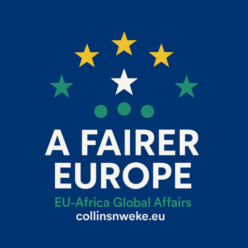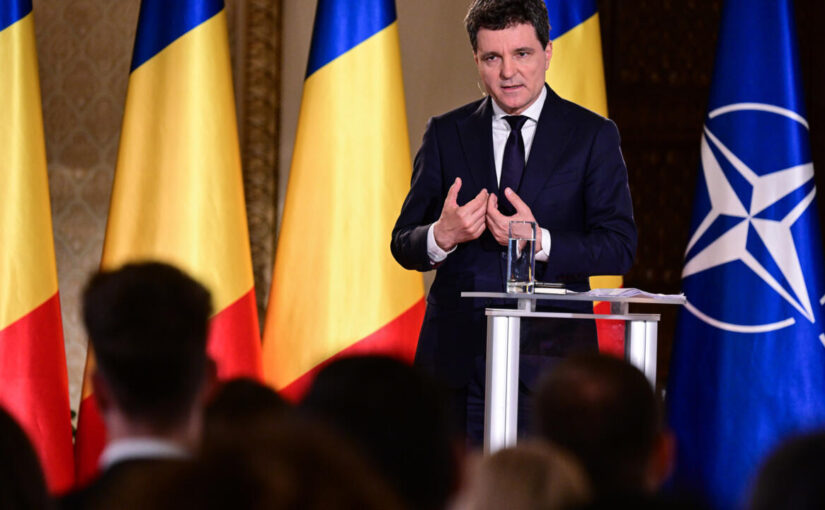Opinion Editorial by Collins Nweke
Romanians and the world are adjusting to the new reality of a new Centrist President, Nicușor Dan. This is a pivotal page in its democratic journey. The opportunity has arrived for the country to redefine its global role. Romania has opportunities not only within the European Union and NATO. It can also strategically reach beyond traditional partnerships. Nowhere offers more promise for such a recalibration than Africa.
Africa is not just a continent of needs. Africa is a continent of solutions. Africa has the world’s youngest population. It also has a rapidly growing consumer market and a digital leapfrogging ecosystem. Africa stands at the threshold of transformation. Yet Romania’s engagement with this vibrant continent is still minimal and mostly filtered through EU policies. It’s time to take ownership of an Africa strategy. This can be on Romanian terms, driven by its national Interests if such interests are broadly interpreted.
President Dan’s pro-European victory reaffirms the place of Romania in the EU family. But being pro-EU does not mean being EU-dependent. Strategic autonomy requires the confidence to build bilateral partnerships where national interests align. Africa is one such arena.
First step should be economic diplomacy. Romania’s strengths in green energy, agro-technology, civil engineering, and digital infrastructure are a natural fit for African development priorities. A Romania–Africa Economic Cooperation Forum can offer the institutional muscle needed to build trade links and promote Romanian SMEs abroad. Brussels based entities, like CBL-ACP Chamber of Commerce, can engage Romanian SMEs. They can mobilize these businesses and chambers of commerce for trade missions to Africa. Romania can offer credit guarantees through EximBank Romania. It can also give export incentives, prioritizing sectors like green energy, agri-tech, digital infrastructure, and civil engineering.
Second, education. Romania has long been respected for the quality of its scientific and technical education. A ‘Romania–Africa Knowledge Bridge’ could offer African students scholarships in Romanian universities. Joint research with African universities can be explored particularly in STEM fields.
Third, public health. Through a Romania–Africa Health Partnership, the country could export best practices in telemedicine, mobile clinics, and epidemic monitoring.
Fourth is Diaspora engagement. Romania’s demographic crisis is well-documented. A targeted mobility partnership with African nations can bring skilled workers to its shores. This is particularly relevant in caregiving, agriculture, and ICT. Similarly, Romania can develop a diaspora and migration engagement strategy with legal migration through bilateral labour agreements. This should be without prejudice to empowering African communities in Romania as economic bridges.
A fifth pillar is governance and democratic support. Within the EU framework and Romania’s post-communist experience in building institutions, could have value for African nations seeking similar transitions. They could consider the transferability of Romanian knowledge in this regard through closer parliamentary exchanges. A Romania–Africa Governance Exchange Platform is an idea worth exploring. Sharing Romanian digital governance models can be an asset for budding democracies in Africa.
Culture is the soul of diplomacy. A ‘Romania in Africa’ Cultural Season will introduce Africa to the country’s unique identity. It would feature Nollywood films, literature, music, and food.
To move from rhetoric to results, President Dan should consider appointing a Special Envoy for African Affairs. Expanding the diplomatic footprint is also important. Embassies must be established or reinforced in strategic capitals. These capitals include Abuja, Nairobi, Addis Ababa, Accra, and Dakar. Additionally, Romanian Agency for International Development Cooperation (RoAid) should be refocused to focus on Africa.
Romania is often spoken of as a bridge between East and West. But Romania can also be a bridge between Europe and Africa, one built on fairness, partnership, and shared future.
The author, Collins Nweke is Senior Consultant with Nigeria Belgium Luxembourg Business Forum. He is a Fellow of the Chartered Institute of Public Management of Nigeria. He is also a Fellow of the Institute of Management Consultants. He is a Distinguished Fellow of the International Association of Research Scholars and Administrators. He serves on its Governing Council. He writes from Brussels, Belgium.
LinkedIn: @collinsnweke | X: @collinsnweke | E: admin@collinsnweke.eu | W: www.collinsnweke.eu
Discover more from Thoughts on EU-Africa Global Affairs
Subscribe to get the latest posts sent to your email.

